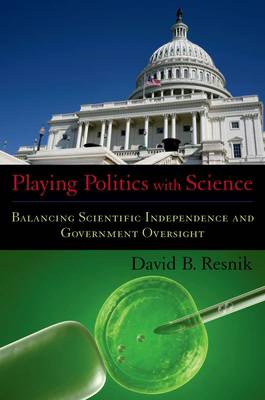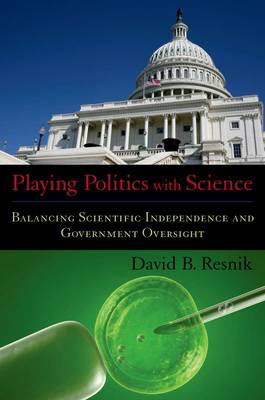
Bedankt voor het vertrouwen het afgelopen jaar! Om jou te bedanken bieden we GRATIS verzending (in België) aan op alles gedurende de hele maand januari.
- Afhalen na 1 uur in een winkel met voorraad
- In januari gratis thuislevering in België
- Ruim aanbod met 7 miljoen producten
Bedankt voor het vertrouwen het afgelopen jaar! Om jou te bedanken bieden we GRATIS verzending (in België) aan op alles gedurende de hele maand januari.
- Afhalen na 1 uur in een winkel met voorraad
- In januari gratis thuislevering in België
- Ruim aanbod met 7 miljoen producten
Zoeken
Playing Politics with Science
Balancing Scientific Independence and Government Oversight
David B. (Bioethicist, Institute for Environmental Health Scienc
€ 107,95
+ 215 punten
Omschrijving
In Playing Politics with Science, David B. Resnik examines the philosphical, political, and ethical issues related to government control of science and develops a conceptual framework for thinking about restrictions on scientific research, education, and advice. He defends scientific independence and autonomy within a framework of government oversight.
Specificaties
Betrokkenen
- Auteur(s):
- Uitgeverij:
Inhoud
- Aantal bladzijden:
- 240
- Reeks:
Eigenschappen
- Productcode (EAN):
- 9780195375893
- Verschijningsdatum:
- 22/01/2009
- Uitvoering:
- Hardcover
- Afmetingen:
- 152 mm x 215 mm
- Gewicht:
- 384 g

Alleen bij Standaard Boekhandel
+ 215 punten op je klantenkaart van Standaard Boekhandel
Beoordelingen
We publiceren alleen reviews die voldoen aan de voorwaarden voor reviews. Bekijk onze voorwaarden voor reviews.









